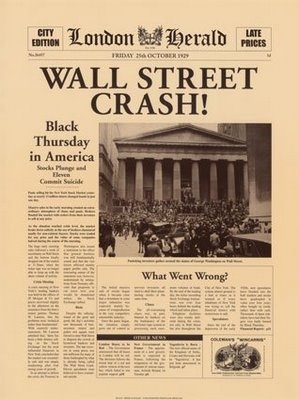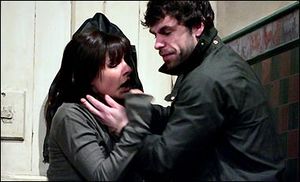Regulation
Regulation is a system of rules put in place by a left wing socialist activist judges nanny state social engineering tax-and-spend Big Brother Government, and torn down again by free market veterans of unpopular wars politics of hate conservative old white men. The purpose of regulation is to ensure that nothing bad can happen. Didn't anyone tell your government this? Oh dear.
Before regulation[edit | edit source]
From prehistoric times up until the 1920s, almost everything was legal. The major exceptions to this general rule were the laws banning public fornication, and crotch-stuffing in professional sport. Capitalist society had created an unprecedented period of wealth and prosperity. Everything seemed to be going swimmingly. Those corporate fat cats on Wall Street were sitting pretty, probably in luxurious leather chairs, feet resting on mahogany sitting room tables crafted with slave labour and paid for with your life savings, overlooking muck-farmers and damper-merchants from their eighth-floor offices, windows being cleaned by Joe Everyman, standing on the roof with a groundhog tied to a rope.
Black Tuesday[edit | edit source]
This office was the perfect place to witness the famous Wall Street crash of Black Tuesday - or would have been, had the occupant not been enjoying a sumptuous banquet of veal and kumquats at a Long Island golf club, eating with silver spoons and ivory butter knives, relieving himself into a gold-plated lavatory while perousing Snob Weekly. And he was probably glad he missed it, because Black Tuesday was the day that Eli Arnold Phibbs (thespian, cyclist) crashed his motor vehicle into celebrated rich person Jay Gatsby on Wall Street, right outside the New York Stock Exchange building. As a result, a rolling tyre comically entered the Exchange, bouncing into the stock boards and destroying all the numbers. This wouldn't have been a problem if the stocks were actually worth anything; in a panic, uncertain owners embarked on a selling spree that would plunge the world into depression for years to come.
Franklin goes to New-Deal-Wood[edit | edit source]
Franklin Delano Roosevelt, hero of the people and God among men, made everything good again, eventually. He did this by micromanaging the economy from his White House war room. He was known for a furious attention to detail: early one morning, his wife Eleanor found him bent over a table-top map of America, surrounded by open ledgers, pondering the economic impact from moving a tiny figurine of a man with a wheelbarrow from Tacoma to Galveston. Of course, Roosevelt's belief that moving tiny figurines influenced economic recovery threatened to expose his underlying paranoid schizophrenia, so his staff attempted to put their president's plans into action by developing the New Deal policies.
After regulation[edit | edit source]
| Economics |
|---|
 |
| Ideologies |
| Theories |
After everything was good again, the United States government suddenly noticed that there was another country that was doing rather well for itself, thank you very much, by regulating such things as the colour of its citizens' shoes and the Feng Shui requirements of the Stalin portrait hanging in every home. This made Americans mad, because they hate our freedoms. The response was to make even more things legal than before the Crash - things like museli, Elvis, and black people.
Fannie, meet Freddie[edit | edit source]
Despite this deregulation Fannie Mae, one of President Roosevelt's liberal henchmen, still held an iron clad grip over home mortgages into the late 60s. She reluctantly relinquished this power when Congress gave a great deal of her money to Freddie Mac, her on-again off-again love interest, and father of her secret illegitimate children Molly Doe, Franny Dee and Barry Gibb. Over time, members of Congress became tired of hearing about the sordid serialisation of their relationship, and privatised it. This was picked up by NBC and turned into the soap opera Days Of Our Lives.
The Fannie and Freddie saga became one of the highest rating daytime shows in American history. The engrossing plotline that created this popularity was centred around the sparring lovers giving all your money to poor people. Congress found itself too emotionally invested to prevent the certain catastrophe that would eventually ensue.
What have we learned?[edit | edit source]
The moral of this story depends largely on who you talk to. Real people would tell you that removing regulation of financial services has proven to be disastrous, time and time again. They might also propose that unchecked markets in a capitalist society have a rude tendency to rapidly expand and become overvalued, leading to inevitable and repeated collapse. The natural conclusion would be that regulation is necessary to ensure the continued proposperity and sustainability of such vulnerable markets.
On the other hand, according to reputable news sources and Republicans, it's probably all Barack Obama's fault.

